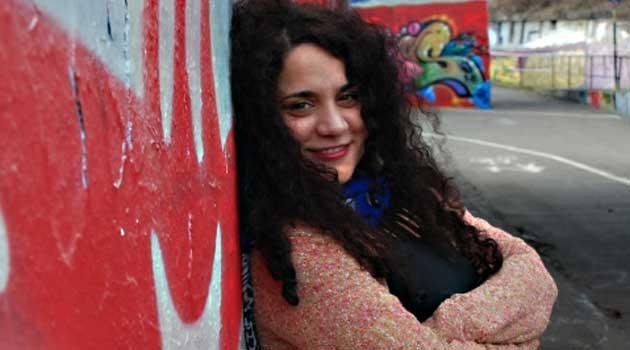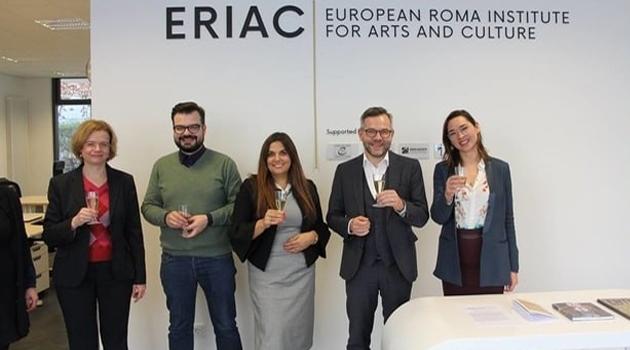Jarmila Balážová now a member of the Barvalipe Academy of the European Roma Institute for Arts and Culture

On 8 June, to mark the first anniversary of the establishment of the European Roma Institute for Arts and Culture (ERIAC), the Berlin-based organization has announced the first seven Barvalipe Academy members nominated by ERIAC’s Pakiv Board. These outstanding Romani personalities from arts and the humanities are expected to guide ERIAC in defining its strategy and future activities.
Jarmila Balážová of the Czech Republic is one of the seven figures so honored. Born in Brno in 1972, she is an activist, journalist and moderator who graduated in journalism in 1997 from Charles University.
From 1992-1998 Balážová worked at the public broadcaster Czech Radio for the “O Roma vakeren” program. In 1997 she became the Editor-in-Chief of the Romani monthly Amaro gendalos.
In 1999 she began working for the public broadcaster Czech Television as a dramaturg of programs for children and youth and hosted the children’s discussion program “Tykadlo” as well as her own talk show. She was a moderator on the “Áčko” program on the commercial TV NOVA station that same year.
Between 2002 and 2013, she worked with Czech Radio 6 on the programs “Human Rights Focus”, “Studio STOP”, “Interview”, “Focus on Youth” and “Science Talk”. From 2003-2014 she was editor-in-chief of the monthly Romano voďi, published by the ROMEA organization.
From its founding until 2014, Balážová was chair of the board of directors of ROMEA. In 2014, she began working as Press Secretary for Czech Human Rights Minister Jiří Dienstbier and since November 2015 she has been Press Secretary for the Czech Education Ministry.
The other Barvalipe Academy Members are:
- Ethel Brooks, Associate Professor in the Departments of Women’s and Gender Studies and Sociology at Rutgers University, New Jersey, USA;
- Tony Gatlif, the acclaimed film director, screenwriter, composer, actor and producer based in France;
- Delaine Le Bas, a cross-disciplinary artist creating installations, performances, photography and films, based in the UK;
- Romani Rose, the Romani activist and head of the Central Council of German Sinti and Roma;
- Iulius Rostas, Assistant Professor at Central European University and Chair of Romani Studies there;
- Mihaela Zatreanu, educator and developer of the first curriculum for instruction in the Romanes language in Romania.
ERIAC is also announcing its call for Associate Members, which will close on 31 July. The Institute is a membership organization bringing together Roma and non-Roma individuals and organizations with competencies and experience in arts and culture who want to be part of ERIAC’s creative hub.
Associate Members play key roles in building up the resources of ERIAC, engaging in creative exchange and co-production, taking ownership of ERIAC’s initiatives, and participating in its decision-making. They have full access to ERIAC’s information and knowledge resources, collections, archives and database; are involved in ERIAC’s program of activities; are able to shape ERIAC’s priorities and activities through the thematic sections; and form part of ERIAC’s growing creative community across Europe.
Associate Members are expected to pledge to respect ERIAC’s founding principles and to fulfill the principle of contribution. You can apply to join ERIAC by filling out an application form here.
